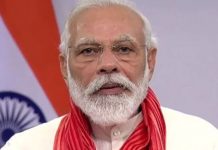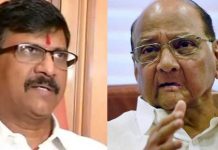
The BKS — the farmers’ wing of the Sangh Parivar — is agitated about several issues. The first relates to genetically modified (GM) food and seed. During the General Election campaign, Modi claimed that agriculture grew the highest in Gujarat during his reign. One of the major reasons for this was the rampant use of BT cotton, or GM seed. In fact, the state government encouraged the use of cheaper domestically produced BT cotton, which was an infringement of the intellectual property right held by Monsanto, a global conglomerate.
Last year, the Centre’s Genetic Engineering Appraisal Committee approved the experimental field trials of 12 GM crops, which included rice, wheat, maize, potato, sugarcane, brinjal, castor and mustard. In a reply to a Rajya Sabha question, Union Environment Minister Prakash Javdekar supported the decision. He maintained that there was no scientific evidence to prove that GM crops adversely impacted the soil, human health or the environment.
However, the Sangh has consistently opposed GM seeds. It was possibly because of the BKS’ intervention that Gujarat and 10 other states refused to permit these trials. Gujarat government officials said that it would permit trials for only GM cotton since the other 11 crops were ‘food’ crops, and the state government couldn’t risk any damage to the soil and health of the people. Gujarat Agriculture Minister Babubhai Bokhiria said, “I will not allow it at all.” The tussle is likely to continue.
Another contentious issue between the BKS and Modi is about the changes in public procurement policy. Normally, the Centre along with the State-owned Food Corporation of India (FCI) buys foodgrain from farmers at a specified minimum support price (MSP). The FCI stores them and uses them to maintain a buffer stock — to deal with natural calamities — and subsidised sales to the poor under the public distribution system (PDS). The subsidies for both the procurement and distribution — farmers are paid higher than the market rates and consumers pay less than the market rates — is provided by the Central government.
After it assumed power in July 2014, the Union Ministry of Consumer Affairs, Food and Public Distribution sent a letter to the states. The letter had wide-ranging ramifications. It stated that surplus foodgrain states could not pay the farmers more than the official MSP. Generally, these states announce a bonus over MSP in a bid to woo the farmers. The Centre feels that such a practice “distorts the markets” and “drives private buyers out of the market”.
If the states declare such bonuses, the FCI will now limit its crop procurement within the state to the quantity that is required by the specific state to sell through the PDS. If the states procure higher quantities, they will have to store and dispose them on their own, and also bear the financial burden. The Centre will not extend subsidies for the higher quantity.
In case of the food-deficit states, the letter included more draconian provisions. It said that if such states announce bonuses over the official MSP, the FCI will not participate in any MSP or procurement activity. The states will need to procure, store and distribute the entire quantities of foodgrain on their own and bear the entire financial expenses.
The BKS thinks that both the moves will hurt millions of farmers. It will reduce the states’ ability to procure grain, and leave the poor and marginalised farmers at the mercy of middlemen and private buyers. Clearly, if the procurement quantities are limited, the farmers will be saddled with the foodgrain that they can neither store nor sell or resort to distress sales.
Modi’s challenge is that he wants Jaitley to include some of these sensitive issues in Budget 2015. The government has to welcome foreign investment to provide a fillip to growth as well as attract domestic money. It has to ease labour laws to prove that it is pro-industry. It needs to take the Make in India mission to a different level. On top of that, Jaitley has to find ways to slash government expenses (read subsidies) and make public procurement efficient to manage the fiscal deficit.
But with the political defeat in Delhi, waning of Modi’s charisma, decline in the perception that he has the solutions to achieve economic growth and an acceptance that “development for all” may take several years, the Sangh Parivar is on a strong wicket. Therefore, organisations such as the SJM, BMS and BKS will try to influence Budget 2015. If their demands are not met, they may even agitate publicly against the government’s policies. This, in turn, will have political implications.
For the first time, Modi’s economics and politics may be on a nerve-wracking and unending warpath.
letters@tehelka.com












